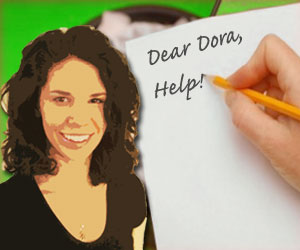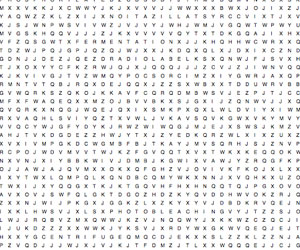 Whether a Derby-winning horse, a Grammy-nominated musician, or a PhD-obtaining scientist, there exists a cast of unsung heroes who have made the individual’s success possible. We might not have three trainers, a jockey and eat carrots all day long, but we certainly have people who have popped us with the whip every once in a while to keep us going. Fortunately, they’re usually the same people that are there to catch us when we stumble as well. With Thanksgiving just a few days away, let’s take a moment to remember, appreciate, and thank the entourage that made our pursuit of science possible.
Whether a Derby-winning horse, a Grammy-nominated musician, or a PhD-obtaining scientist, there exists a cast of unsung heroes who have made the individual’s success possible. We might not have three trainers, a jockey and eat carrots all day long, but we certainly have people who have popped us with the whip every once in a while to keep us going. Fortunately, they’re usually the same people that are there to catch us when we stumble as well. With Thanksgiving just a few days away, let’s take a moment to remember, appreciate, and thank the entourage that made our pursuit of science possible.
Your Road to the PhD: Who Are You Thankful For?
by
Problems Communicating Science to Family? It’s Not Them, It’s You.
by
My parents are both non-scientists and have no idea what I do, despite hours of attempted explanations. Am I a jerk for getting frustrated at their lack of ability to grasp my project?
-Short fuse, graduate student
Should There Be an Official Language of Lab?
by
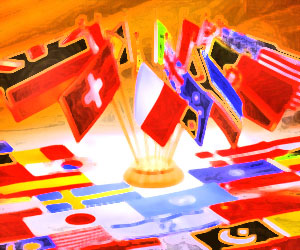 Isn’t the official language of science…science? Well, there’s no doubt science is a language of it’s own, but international conferences have opted for English as the primary means of communication. Talks, poster sessions, and exhibit halls all expect registrants to speak the same language. Yet once everyone returns home to their respective labs, should the language rules still apply?
Isn’t the official language of science…science? Well, there’s no doubt science is a language of it’s own, but international conferences have opted for English as the primary means of communication. Talks, poster sessions, and exhibit halls all expect registrants to speak the same language. Yet once everyone returns home to their respective labs, should the language rules still apply?
Grr, baby. Very grr.
by
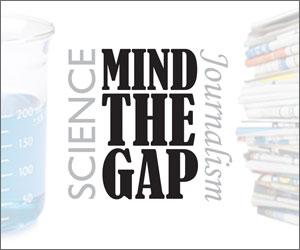 “Grr”. That’s about as close to impersonating a lion’s roar that you, or I, or even Austin Powers, will ever be able to get, thanks to the lack of fat in our vocal folds.[Continue Reading…]
“Grr”. That’s about as close to impersonating a lion’s roar that you, or I, or even Austin Powers, will ever be able to get, thanks to the lack of fat in our vocal folds.[Continue Reading…]
Giving a Great Talk Begins With the Right Software
by
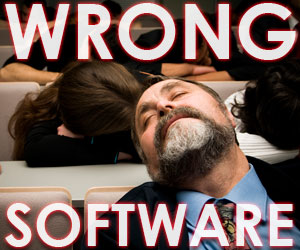 Communicating our work is one of the most important responsibilities of our job as scientists. Although traditional publication is one mechanism of sharing our findings, more commonly we’re called upon to present our research orally. Whether speaking at a small group meeting or a large international conference, the success of our talk may hinge on our ability to craft an engaging performance.
Communicating our work is one of the most important responsibilities of our job as scientists. Although traditional publication is one mechanism of sharing our findings, more commonly we’re called upon to present our research orally. Whether speaking at a small group meeting or a large international conference, the success of our talk may hinge on our ability to craft an engaging performance.
Lab Techniques Wordsearch: You Can Do Them, But Can You Find Them?
by
Co-First Author Doesn’t Have to be Last Resort
by
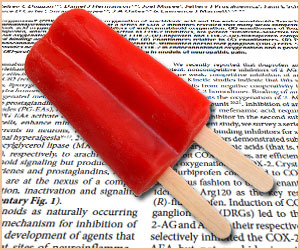 In our publication-dominated world decisions about graduating, funding and hiring depend heavily upon the number and quality of our manuscripts. As a result, setting an author byline can be contentious to say the least. While three positions are widely regarded as the most important – first, second and the corresponding author – there is another option that is frequently treated like the red-headed stepchild of the byline: the co-first author.
In our publication-dominated world decisions about graduating, funding and hiring depend heavily upon the number and quality of our manuscripts. As a result, setting an author byline can be contentious to say the least. While three positions are widely regarded as the most important – first, second and the corresponding author – there is another option that is frequently treated like the red-headed stepchild of the byline: the co-first author.
Exactly How Flexible is the Co-First Author Asterisk?
by
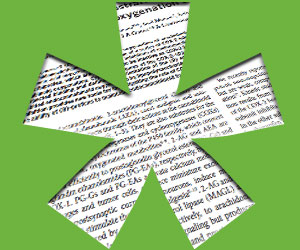 Talk to any set of identical twins for the first time and at some point in the conversation you’ll undoubtedly ask whether they ever switched places in order to play a joke on their parents, teachers, girlfriends or boyfriends. While each set of twins may answer differently, they’ve usually drawn an ethical line somewhere in the sand as to how far they think it’s appropriate to take the undercover mission. In science, ask co-first authors whether they switch the author biline on their CV and the line in the sand might not be as clear.
Talk to any set of identical twins for the first time and at some point in the conversation you’ll undoubtedly ask whether they ever switched places in order to play a joke on their parents, teachers, girlfriends or boyfriends. While each set of twins may answer differently, they’ve usually drawn an ethical line somewhere in the sand as to how far they think it’s appropriate to take the undercover mission. In science, ask co-first authors whether they switch the author biline on their CV and the line in the sand might not be as clear.
How to Address the Funky-Smelling Lunch Problem
by
More than half of our lab is made up of international students and postdocs. This is a good thing- except at lunch. By the time the microwave is done warming up everyone’s food, the smell is soooo bad that sitting in the lunchroom is unbearable. Most of our lab eats together and were it not for the smell, it would be fun. Is there anything I can do to fix this without seriously offending someone or missing out on group lunch?
– Claire, grad student
Look Into My Wide, Vacant, Eyes
by
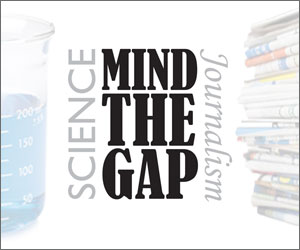 When I was in my first year at college I went to a hypnotism “show”, or “exhibition”, or “demonstration”… I don’t know … anyway, a hypnotist came and hypnotized people. Being naturally curious, I volunteered. Also, either because of my natural skepticism or through the incompetence of the hypnotist I failed to become entranced. But a friend of mine was. She was told to imagine the boy next to her naked, and immediately burst out laughing. When the hypnotist asked her why she was so amused, she gave a telltale gesture with her pinky finger.
When I was in my first year at college I went to a hypnotism “show”, or “exhibition”, or “demonstration”… I don’t know … anyway, a hypnotist came and hypnotized people. Being naturally curious, I volunteered. Also, either because of my natural skepticism or through the incompetence of the hypnotist I failed to become entranced. But a friend of mine was. She was told to imagine the boy next to her naked, and immediately burst out laughing. When the hypnotist asked her why she was so amused, she gave a telltale gesture with her pinky finger.

